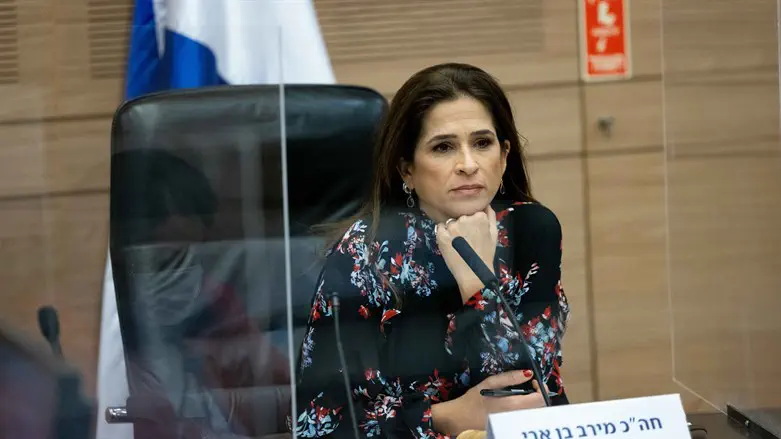Navigation
Install the app
How to install the app on iOS
Follow along with the video below to see how to install our site as a web app on your home screen.

Note: This feature currently requires accessing the site using the built-in Safari browser.
More options
You are using an out of date browser. It may not display this or other websites correctly.
You should upgrade or use an alternative browser.
You should upgrade or use an alternative browser.
Who are the Israelis?
- Thread starter P F Tinmore
- Start date
- Dec 6, 2009
- 77,705
- 4,168
- 1,815
- Thread starter
- #5,165
Israeli forces beat mourners carrying Abu Akleh’s body
rylah
Gold Member
- Jun 10, 2015
- 21,143
- 4,483
- 290
Israeli forces beat mourners carrying Abu Akleh’s body
Let me understand - they've dug her out for another 'funeral',
3 days after she was buried, preventing the investigation.
Only so her coffin can be used as a prop
in this al Jazeera provocation?
Should use this when
advertising for employees.
Last edited:
rylah
Gold Member
- Jun 10, 2015
- 21,143
- 4,483
- 290
It happens again - Iranian athlete "disappears" during the World Championship.
Believed that she defected and planned a new life in another country
Iranian weightlifter Yakta Jamali, only 17, "disappeared" yesterday (Thursday) during the last day of the World Youth Championship in Crete, with the team leaders believing that she has defected and is planning a new life in another country, similar to judoka said Moulay.
Iranian media reported that Jamali "left the team hotel without informing anyone." Officials at Iran's National Weightlifting Federation (IRIWF) spoke with Jamali's family, but no whereabouts were reported.
"I do not know what happened," IRIWF vice president Zahara Puramin told IRNA.
"Many believe she, like many before her, took the opportunity to leave Iran," the Iranwire website said. Several members of the delegation stayed in Greece to look for her.
Jamali is considered the most successful athlete in the short history of weightlifting for women in Iran, having become the first world medalist of her country last year, when she won the bronze at the Uzbekistan Youth World Championships.
In the past year she has participated in three world championships, for young women (up to age 20) and one in youth (up to 17), and has won a total of three medals. In Crete she won a silver medal in the hoisting style weighing 87 kg, and finished in fourth place overall.
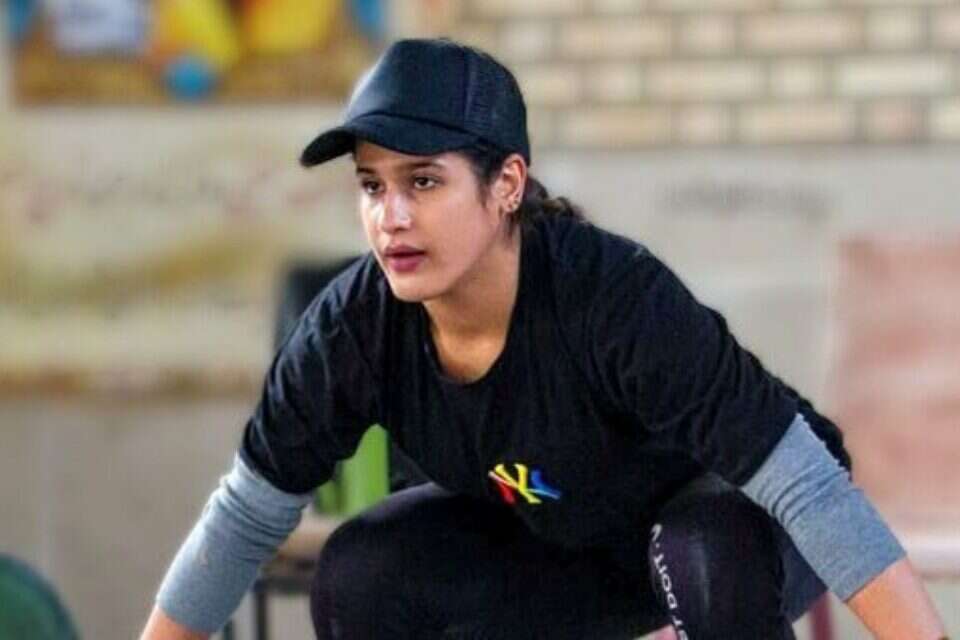
 www.israelhayom.co.il
www.israelhayom.co.il
Believed that she defected and planned a new life in another country
Iranian weightlifter Yakta Jamali, only 17, "disappeared" yesterday (Thursday) during the last day of the World Youth Championship in Crete, with the team leaders believing that she has defected and is planning a new life in another country, similar to judoka said Moulay.
Iranian media reported that Jamali "left the team hotel without informing anyone." Officials at Iran's National Weightlifting Federation (IRIWF) spoke with Jamali's family, but no whereabouts were reported.
"I do not know what happened," IRIWF vice president Zahara Puramin told IRNA.
"Many believe she, like many before her, took the opportunity to leave Iran," the Iranwire website said. Several members of the delegation stayed in Greece to look for her.
Jamali is considered the most successful athlete in the short history of weightlifting for women in Iran, having become the first world medalist of her country last year, when she won the bronze at the Uzbekistan Youth World Championships.
In the past year she has participated in three world championships, for young women (up to age 20) and one in youth (up to 17), and has won a total of three medals. In Crete she won a silver medal in the hoisting style weighing 87 kg, and finished in fourth place overall.

שוב זה קורה: ספורטאית איראנית "נעלמה" במהלך אליפות העולם ביוון | ישראל היום
עקבותיה של מרימת המשקולות יקטה ג'מאלי, בת 17 בלבד, "נעלמו" במהלך יומה האחרון של אליפות העולם לנוער בכרתים • על הדיווחים, ראשי הנבחרת מאמינים כי ערקה ומתכננת חיים חדשים במדינה אחרת, בדומה לסיפור של הג'ודוקא סעיד מולאי
rylah
Gold Member
- Jun 10, 2015
- 21,143
- 4,483
- 290
Weekly Torah Portion - 'BeHar' | The Economics of Liberty
The most surprising best-selling book in 2014 was French economist Thomas Piketty’s Capital in the Twenty-First Century[1] – a dense 700-page-long treatise on economic theory backed by massive statistical research – not the usual stuff of runaway literary successes.
Much of its appeal was the way it documented the phenomenon that is reshaping societies throughout the world: in the current global economy, inequalities are growing apace. In the United States between 1979 and 2013, the top one per cent saw their incomes grow by more than 240 per cent, while the lowest fifth experienced a rise of only 10 per cent.[2] More striking still is the difference in capital income from assets such as housing, stocks and bonds, where the top one per cent have seen a growth of 300 per cent, and the bottom fifth have suffered a fall of 60 per cent. In global terms, the combined wealth of the richest 85 individuals is equal to the total of the poorest 3.5 billion – half the population of the world.[3]
Picketty’s contribution was to show why this has happened. The market economy, he argues, tends to makes us more and less equal at the same time: more equal because it spreads education, knowledge and skills more widely than in the past, but less equal because over time, especially in mature economies, the rate of return on capital tends to outpace the rate of growth of income and output. Those who own capital assets grow richer, faster than those who rely entirely on income from their labour. The increase in inequality is, he says, “potentially threatening to democratic societies and to the values of social justice on which they are based.”
This is the latest chapter in a very old story indeed. Isaiah Berlin made the point that not all values can co-exist – in this case, freedom and equality.[4] You can have one or the other but not both: the more economic freedom, the less equality; the more equality, the less freedom. That was the key conflict of the Cold War era, between capitalism and communism. Communism lost the battle. In the 1980s, under Ronald Reagan in America, Margaret Thatcher in Britain, markets were liberalised, and by the end of the decade the Soviet Union had collapsed. But unfettered economic freedom produces its own discontents, and Picketty’s book is one of several warning signs.
All of this makes the social legislation of parshat Behar a text for our time, because the Torah is profoundly concerned, not just with economics, but with the more fundamental moral and human issues. What kind of society do we seek? What social order best does justice to human dignity and the delicate bonds linking us to one another and to God?

Read more -

 blogs.timesofisrael.com
blogs.timesofisrael.com
The most surprising best-selling book in 2014 was French economist Thomas Piketty’s Capital in the Twenty-First Century[1] – a dense 700-page-long treatise on economic theory backed by massive statistical research – not the usual stuff of runaway literary successes.
Much of its appeal was the way it documented the phenomenon that is reshaping societies throughout the world: in the current global economy, inequalities are growing apace. In the United States between 1979 and 2013, the top one per cent saw their incomes grow by more than 240 per cent, while the lowest fifth experienced a rise of only 10 per cent.[2] More striking still is the difference in capital income from assets such as housing, stocks and bonds, where the top one per cent have seen a growth of 300 per cent, and the bottom fifth have suffered a fall of 60 per cent. In global terms, the combined wealth of the richest 85 individuals is equal to the total of the poorest 3.5 billion – half the population of the world.[3]
Picketty’s contribution was to show why this has happened. The market economy, he argues, tends to makes us more and less equal at the same time: more equal because it spreads education, knowledge and skills more widely than in the past, but less equal because over time, especially in mature economies, the rate of return on capital tends to outpace the rate of growth of income and output. Those who own capital assets grow richer, faster than those who rely entirely on income from their labour. The increase in inequality is, he says, “potentially threatening to democratic societies and to the values of social justice on which they are based.”
This is the latest chapter in a very old story indeed. Isaiah Berlin made the point that not all values can co-exist – in this case, freedom and equality.[4] You can have one or the other but not both: the more economic freedom, the less equality; the more equality, the less freedom. That was the key conflict of the Cold War era, between capitalism and communism. Communism lost the battle. In the 1980s, under Ronald Reagan in America, Margaret Thatcher in Britain, markets were liberalised, and by the end of the decade the Soviet Union had collapsed. But unfettered economic freedom produces its own discontents, and Picketty’s book is one of several warning signs.
All of this makes the social legislation of parshat Behar a text for our time, because the Torah is profoundly concerned, not just with economics, but with the more fundamental moral and human issues. What kind of society do we seek? What social order best does justice to human dignity and the delicate bonds linking us to one another and to God?

Read more -

The Economics of Liberty (Behar, Covenant & Conversation)
From the blog of Jonathan Sacks at The Times of Israel
rylah
Gold Member
- Jun 10, 2015
- 21,143
- 4,483
- 290
The 1st soldier to ascend the Temple Mount during the Six-Day war
Despite Hamas threats and the Nakba day - Ascending the Temple Mount
| Temple Mount Yeshivah News


 har-habait.org
har-habait.org

 har-habait.org
har-habait.org

Despite Hamas threats and the Nakba day - Ascending the Temple Mount
| Temple Mount Yeshivah News


×ר ×××ת ××ש×ת - ×תר×ש×ת ×××¨× 55 ×©× × | ××××× ×ר×ש×× ×©×¢×× ××ר ×××ת ×ששת ×××××
בששת הימים נכנסתי באקראי להר הבית, בטעות ובלי לשים לב • רצתי לכותל ובטעות עליתי להר הבית דרך שער המוגרבים • תוך סערת הקרבות לא הספקתי להתרגש • היום עליתי בפעם הראשונה מאז ואני מאוד מתרגש • כואב לראות את הר הבית בחורבנו • שמעון יצחק (שיץ) משוחח בהר הבית עם הרב אריה ליפו
 har-habait.org
har-habait.org

×ר ×××ת ××ש×ת - ×Ö¼×ִקְ×ָּש×Ö´× ×ªÖ¼Ö´×רָ××Ö¼ | ×¢×××× ××ר ×××ת ×ק××× ×ת ××צ×××
מורא מקדש - לא ניתן לקיים את המצווה מרחוק • העולים להר הבית מקיימים את המצווה
 har-habait.org
har-habait.org

Last edited:
rylah
Gold Member
- Jun 10, 2015
- 21,143
- 4,483
- 290
Police - 'The Flag March this year will be organized as planned'
| "Ra'am won't like it", is this the next storm?
MK's Ben-Gvir, May Golan, and other members of Knesset,
organize to join the Flag March on Jerusalem Day.
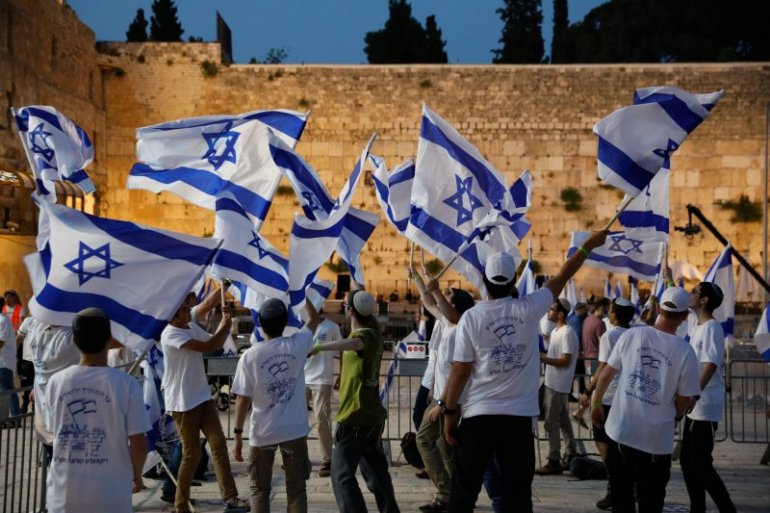
 tovnews.co.il
tovnews.co.il

| "Ra'am won't like it", is this the next storm?
MK's Ben-Gvir, May Golan, and other members of Knesset,
organize to join the Flag March on Jerusalem Day.

הסערה הבאה? חברי כנסת מתכוונים להשתתף בריקוד הדגלים ביום ירושלים - TOV אקטואליה יהודית
ברע"מ לא יאהבו את זה: ח"כ בן גביר, מאי גולן וח"כים נוספים מהציונות הדתית הודיעו כי הם צפויים להשתתף במצעד הדגלים
 tovnews.co.il
tovnews.co.il

rylah
Gold Member
- Jun 10, 2015
- 21,143
- 4,483
- 290
Exodus politics | Leaven breaks Yemina's coalition | Abbas' party Islamic council announces resignation from Knesset
Coalition Member Mansour 'Abbas: Non-Muslims Must Stay Out of Temple Mount
Following the Islamic Shura Council's hearing, the RA'AM party announced the resignation
of its membership in the coalition and also in the Knesset until further notice - in protest
of the "Israeli aggression on the Al-Aqsa Mosque"

Coalition Member Mansour Abbas: Non-Muslims Must Stay Out of Temple Mount
"If the security forces' activity in the blessed al-Aqsa Mosque is not stopped immediately, I see myself outside the coalition."www.jewishpress.com
רע"מ הודיעו: מקפיאים את חברותנו בקואליציה ובכנסת - סרוגים
לאחר דיון החירום של מועצת השורא, מפלגת רע"מ הודיעה על הקפאת חברותה בקואליציה וגם בכנסת עד להודעה חדשה - זאת במחאה על "התוקפנות הישראלית...www.srugim.co.il
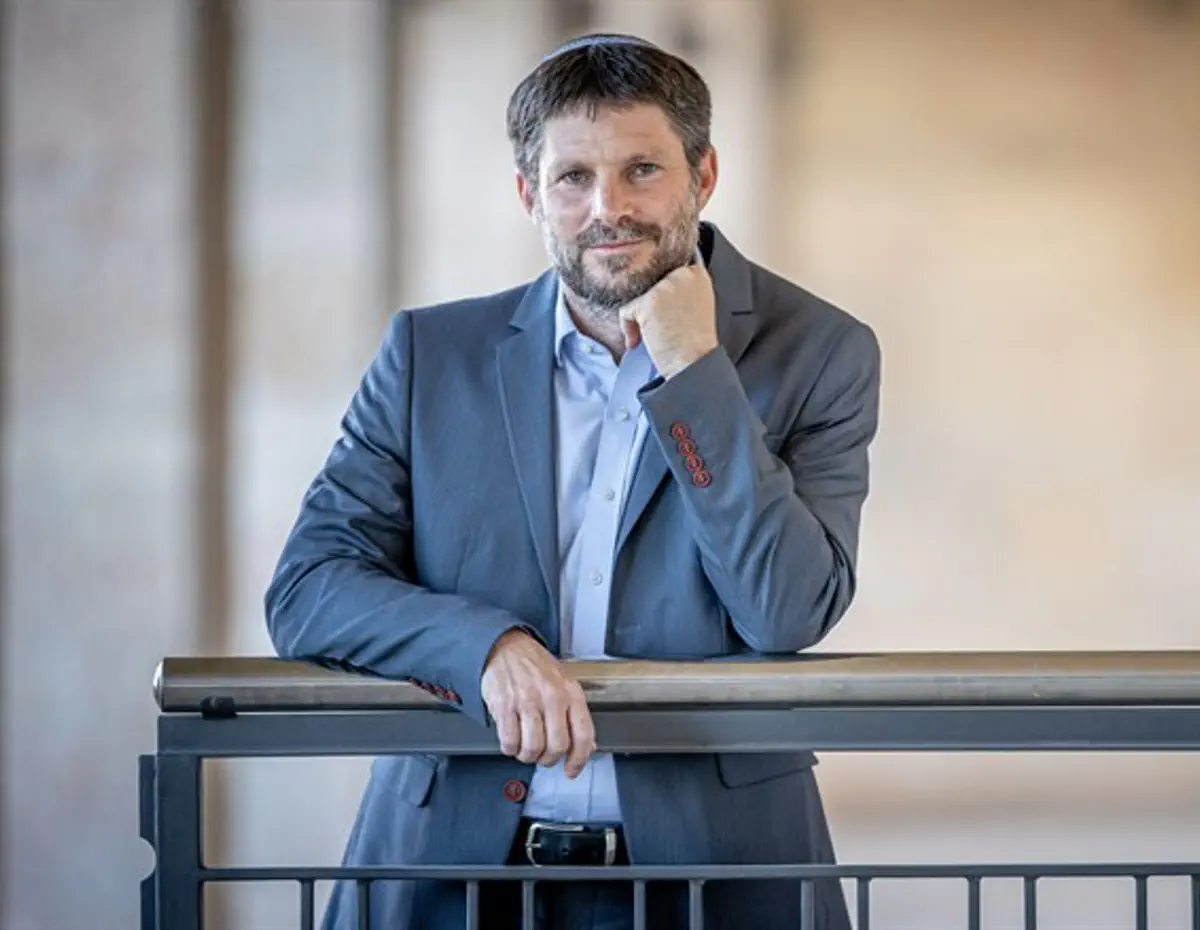
Channel 13 News poll: Religious Zionism Party is the third largest in the Knesset
Yamina wins eight seats and Ra'am does not pass the electoral threshold. The Likud has 36 seats.www.israelnationalnews.com
El'ad against Police measures following terror attacks

Last edited:
rylah
Gold Member
- Jun 10, 2015
- 21,143
- 4,483
- 290
Making sustainability more than just a trend
The fashion industry is one of the most resource-intensive industries in the world: it’s the second-highest water-consuming industry, it uses a great deal of energy to power a plethora of processes, and it utilizes a large number of plants.
'Sustainable on-demand fashion' is being demanded by fashion’s next generation of consumers, which requires a rapid transformation of traditional supply chain and production methods to reach net-zero goals. 'Digitization of fashion' is a revolution that is long overdue and requires innovators!
Read more -
Making sustainability more than just a trend - Start-Up Nation Central
Start-Up Nation Central, the Climate Solutions Prize, and Kornit Digital are calling on Israeli technologists, founders, and innovators of all kinds to apply their solutions to these challenges facing the fashion industry.

Let me understand - they've dug her out for another 'funeral',
3 days after she was buried, preventing the investigation.
Only so her coffin can be used as a prop
in this al Jazeera provocation?
Should use this when
advertising for employees.
What a beautiful religion.
rylah
Gold Member
- Jun 10, 2015
- 21,143
- 4,483
- 290
Israeli Cultural Revolution - Passion For The Temple | The Imaginative Force | Prophetic Cinema
"Those of vast grasping, their force of imagination is great and very exalted." - Rabbi Kook
At least among us Jews, those who have a grasp of knowledge,
are those of great imagination. And then there's great daring,
in their descriptions, their thoughts.
We can see this among the prophets.
We can also see this among Kabbalists.
The terminology is full of imaginative power.
Which causes superficial people to think all these folks are confused and need psychiatric hospitalization. But they don't need any, they are entirely normal people. With that, they have great imaginative power, breaking many borders.
In the scientific field, until Psychoanalysis none of this was known. The Freudian psychoanalysis revealed great depths within the human subconscious, symbolic thinking. Also later, Jung has many observations of this kind - the collective unconscious...the ocean of souls.
So, "those of vast grasping, their force of imagination is great and very exalted, and it's connected with visions that are more general in reality. And according to their courage, and purity of their spirit, the imaginative power enacts itself through them. To draw exalted imaginations, that the light of the
high truth reveals by them. In such revelations that no logical mind can reach".
What does Rabbi Kook want from us? That we are not to be scared of meeting people
of such imaginative force, that we don't think it's a shortcoming, moreover - it is an advantage.
Possibly Rabbi Kook wants something else, besides not being scared to meet such people, rather Rabbi Kook tells You: "Maybe You, the reader, You are one of these great people, that You don't get scared seeing You have imaginative power that is great - use it for these sacred purposes.".
Landmark Passover Offering Practice |Rabbi Sherki
Shalom to everybody, my respected, each to their respect - today we are expressing longings.
Also those who don't believe in the realization of the longings immediately, should be longing,
even more, to hope for the realization of the longings in the future.
But what future?
As much closer.
But what are we longing for?
In the exodus of Egypt it is said " Attribute and take yourself a passover offering" (Shemot 12,21), our sages taught 'pull your hands from foreign service' (see Rashi, according to Midrash Halachah) . What is 'foreign service' ('Avodah Zarah)? Whichever enslaves the human. On the other hand, the service of HaShem is that which liberates the human.
As Rabbi Yehudah HaLevi said - 'Servant of HaShem only he is free'.
Currently, the world is in a deep moral crisis.
The entire world doesn't believe in the possibility
to turn this world into Paradise upon Earth, despite today's
technology and resources at our disposal, it's needed for the human
to have faith in the ability to overcome his dark inclinations, only when a human
believes in his liberty. The human who's really free, has faith more in the good urge,
rather than the bad inclination. And the beginning of liberation from the bad inclination,
which began with the initial rebellion against 'Avodah Zarah - was the offering of Passover.
One who longs for the bringing forth the offering of Passover,
is longing for true liberty. It's the longing for the renewal of
the man force that is capable to correct the entire world
in G-d's kingdom.
Therefore we are not working today,
G-d forbid for 'primitive service', return to
service that has supposedly been outdated.
We are indeed progressing forward towards the
renewal of the human liberty in its fullest stature.
Thank You very much.
Last edited:
rylah
Gold Member
- Jun 10, 2015
- 21,143
- 4,483
- 290
Israeli Cultural Revolution Pesah 5782 -
Revival of Prophetic Poetry
Rabbi Mosheh Elharary,
chief rabbi of the city of Shlomi.
Narkis - 'Im Savi
As Avraham Avinu
Who counted stars at night,
Who called to his Creator from the furnace
Who bound his son - was my grandfather
The same complete faith
Inside the flame,
And the same dewy glance
And waves soft beard
Outside fell the snow
Outside they roared:
"There's no judgement and there's no judge"
And in his cracked room, the shattered
Angels sing about Jerusalem of the above
Pe'er Tasi - Ein Lean Lahzor (Nowhere To Return)
Everyone said it was good but I felt bad
I have found myself in a caravan
Notice how everything messes up here
Come breathe with me more of the spoiled air
Look how everything trembles spilling into the seas
The waves move forward
And I move backward
We also certainly break on the shore
When the wind is beneath me
Then I fly the furthest
Let us dive together
Breathe deep
Say no,
There's nowherem,
Nowhere to return
And it is a bit frightening
To look at the mountain top
Big cloud covers the way back
Jump head first into the waters
Keeping only one eye open
Pour out the heart like wine
From song to song a bit each time
Lying to myself how well I am
Remaining not alone but lonely
Last breath we shall rise with the wave
And breathe of some more spoiled air
The waves move forward, and I move back
Say no, nowhere, there is nowhere to return
Last edited:
rylah
Gold Member
- Jun 10, 2015
- 21,143
- 4,483
- 290
בס"ד
Liberation of Creativity Of the Soul | Orot HaKodesh - Prophetic School Of Cinema
New thoughts, it's always frightening. As fear, awe, of the renewal...
Says HaRav (Kook) : "there's an overwhelming of a sort of awe during the the creation of thoughts...an idea rises on the heart, which is a new idea never before existing there, and awe of chaos overwhelms it."
And he remains with the raw idea as it is, he remains, the idea exists,
but he leaves it in a raw form, undeveloped.
"Or, that by suppressing of this awe, he asks for himself only one path in this darkness, and the thought doesn't breach all the walls of its imprisonment. Only one distance does it spread heavily, and he responds and gets overwhelmed by the pressure pf the narrow thought.
"And creativity, because of that is deficient, while the world, that needs these thought innovators remains gloom, hunger and thirst"
Yes, him, that specifically had the opportunity to make this innovation, his fear of his innovation, his decision that this innovation will only cause some small path, merely local specific speech - this cause suffering to the entire world. For the world has been waiting for You, with this new idea, and instead You are afraid of Your new idea.
Clear till here?
Israeli upcoming cultural revolution - Hebrew perspective on the Matrix
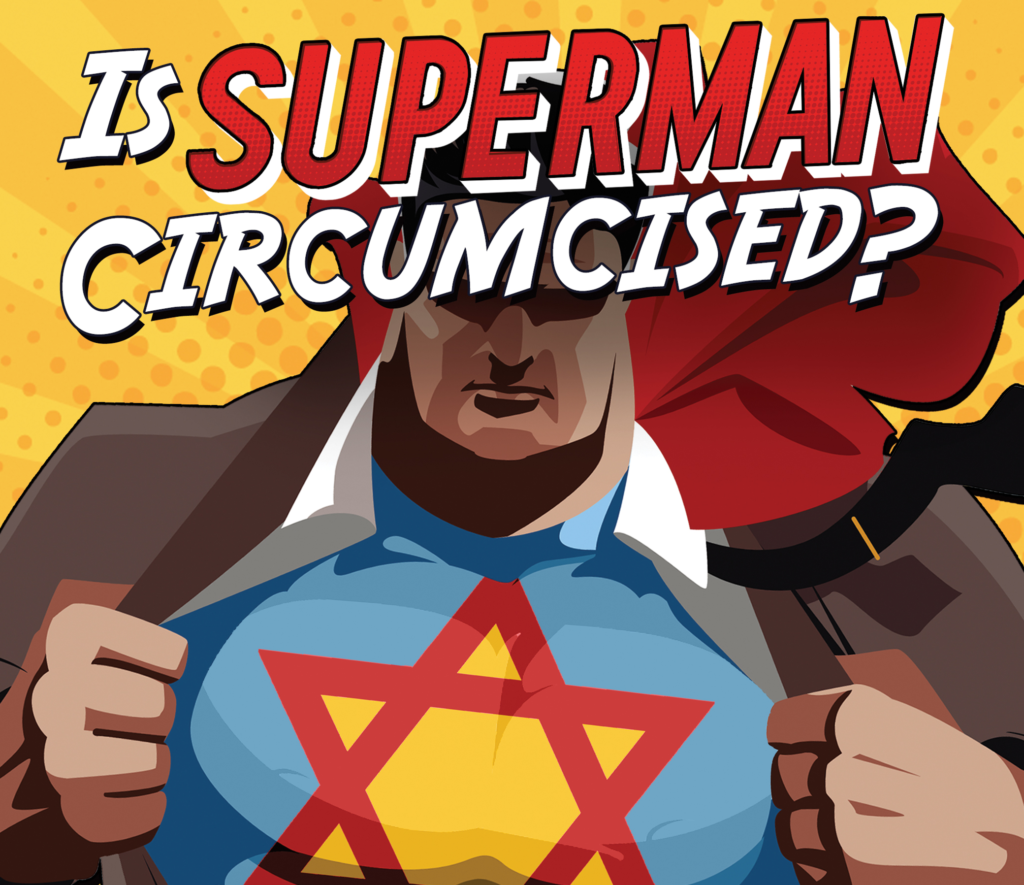
Is Superman Circumcised? (with Roy Schwartz) | VISION | The Next Stage
Discussion with Roy Schwartz: Do today's popular superheroes express deep Jewish values, internal struggles & aspirations for a better world?visionmag.org
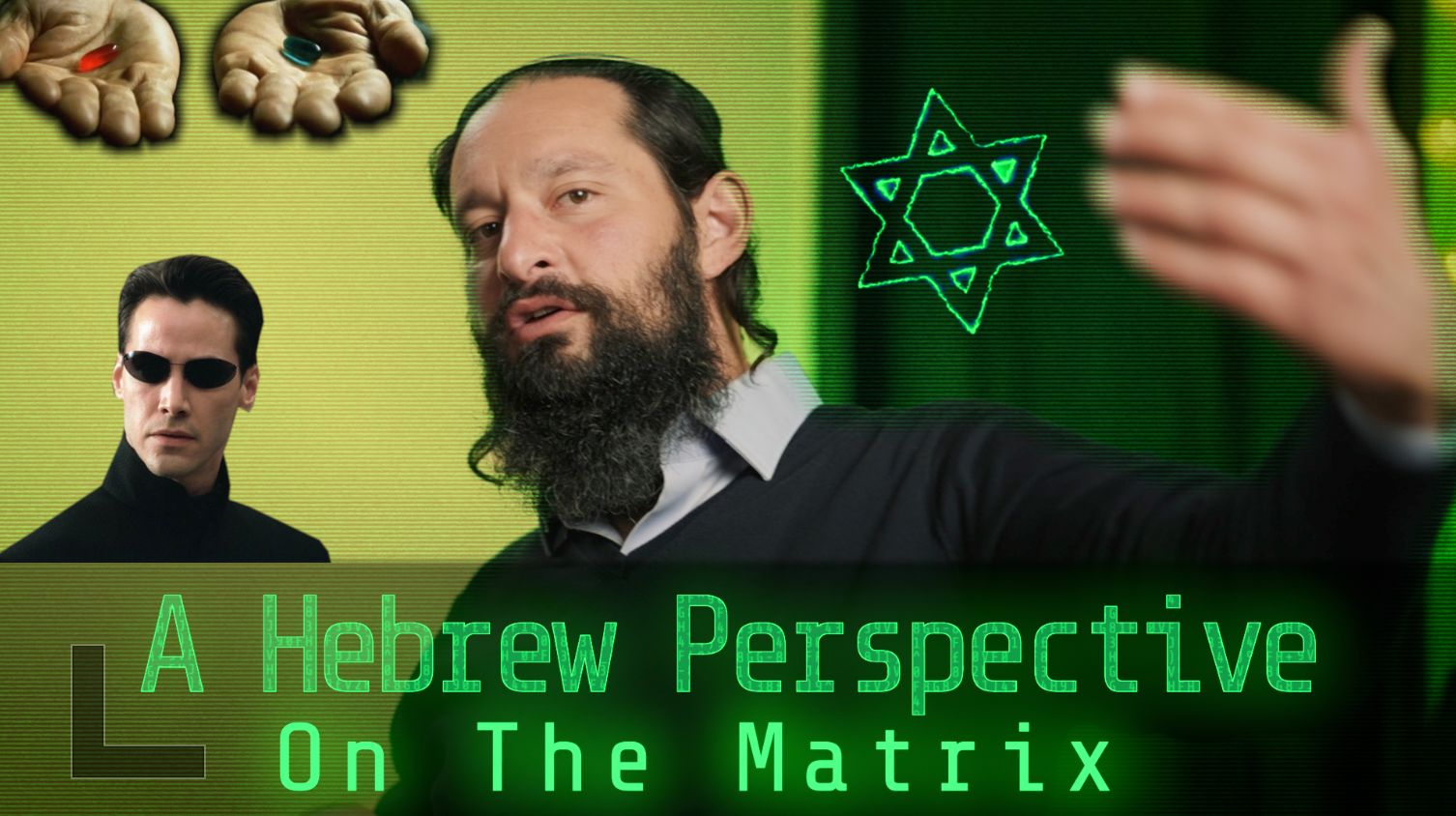
A Hebrew Perspective on The Matrix | VISION Magazine
One can find teachings from the people of Israel's ancient prophets and sages woven into many of the themes expressed in the Matrix films.visionmag.org
Israel Independence Day Film Festival 2022 | David Ben-Gurion
Faith and arts | Can arts, and cinema be tools for correcting the world?
Moderator: The words 'faith' and 'art' come essentially from the same root ('Emounah' and 'Omanout'), I would like to hear Your point of view. Generally and as a tool to correct the world, is it capable, what is the ability of art to influence, and can the spirit receive actual tools, to influence us all?
R. Sherki: Good evening, it was really interesting.
The 2nd movie talked about everything except God.
In a certain sense, it can be said that also the 1st movie,
deals with what the Israeli nation likes to discuss - the orthodox.
Where is God here I haven't found, that's correct.
But it's very interesting, I think that cinema is overall
the technological development of theater, despite disciplines
being difficult to see as parallel. But the basic intuition of cinema,
I think it started with theater, and we can't forget that theater was - a religious ceremony.
As to say, when it began in Greece, not only were they offering a sacrifice before the show,
we can see it today in the ancient theater in Beit Shean, there is a place You see an altar, on which they'd sacrifice at the beginning of the show. But the characters were, initially from the mythology, meaning mostly gods. What is interesting is that the gods didn't arrive at the scene, those who arrived were actors, to play the role of the gods. It is possible to definitely say that the longing at the foundation of theater -is the longing that the gods to arrive.
Imagine that instead of an actor playing Hamlet, suddenly Hamlet arrives.
This can happen if the actor gets a little crazy, at the end of the play,
and keeps thinking he's Hamlet.
Moderator: There's this theme in a Woody Allen movie.
R.Sherki: Yes, the question is, why is there no theater in Jewish tradition?
Essentially it begins the moment that God ceases revealing, and the first
theater play in the TaNaCh is the Megilah story, the Megilah of Ester.
There are characters each playing role that is not theirs,
it's not them truly. Not by chance, all the plays
in the nation of Israel came from Purim.
Why not before? Why is that a Greek creation?
I understand it so, because in our play the actor was God Himself,
meaning He arrived. There is no one playing Mosheh, Mosheh is there.
From then on, it's very difficult to live with the fundamental sense, the classic
Jewish experience was that we are the subjects of revelation. This is exactly the opposite of the fundament sense at the basis of the Greek worldview, which later developed into Philosophy, this is later, but already began in the era of mythology, the sense that the human is fighting for independence before God, it can be said. for autonomy.
And to this we should add, You've talked about it, 'shall not make statues or any graven image' - the fear of the visual. So much that when a Jew wants to express his inner world, closes the eyes and says 'Shma'a', meaning there's a clear preference for the acoustic over the visual.
With that, there's a series of commandments having to do with sight.
To see the candles of Hanukah or the Hadar fruit 'and you shall take for you' (Vayikra 23),
there's a requirement that the fruit is beautiful, and pleasant aesthetically, there is this dimension. Interesting that the holidays of Sukkot and Hanuka are coming after the holiday of Rosh HaShanah when the person has to hear the sound of Shofar.
So clearly there's a sort of tension. Once I was asked to write an article about the 'theater of revelation'.
People asked me - we want to be creators, essentially the stood before the question You're rising, about how can we speak about spiritual matters, etc., without getting into pagan symbolism...something like that. Given I'm neither in cinema nor in theater, I'm not an artist, but I've said regarding the goals, a thing that has to be clear - the challenge of the Hebrew creativity when dealing with spiritual matters, is to know to express this tension.
Meaning, essentially, how to be messed up. As to say, probably Jewish existence is a complicated existence, there're even some who define it as a mental illness or paranoia of a paranoid who is right because he is really being chased. So clearly if You want to express something that the prophetic tradition wants to talk about - then you have to give place to this complex.
It is possible that the helicopter theme is connected to this.
Meaning, You want (Psalm 121) - "I shall raise my eyes, from where comes my rescue, my rescue from HaShem" - really comes a helicopter. And You know that this helicopter is not what You have been expecting, but this is the messanger You've been expecting.
Many times, our critical artists, speak in terms with which I very much identify.
When I read writings by atheists or haters of religion, I feel that I'm meeting here Rabbi Kook. Meaning the criticism arising in the depth of Judaism against its pseudo-pagan images,
or almost pagan, that express themselves in the religious institution, etc., I don't want to play into the politically correct of being against the religious institution, that isn't my interest.
But in many times there's in this, say artistic rebellion - something seeking to meet God truly.
If I'm allowed a story, I was once interviewed with Prof. Caro Schtranger Z"L, who was my friend and foe at the same time, he was an 'x-religious'. By the way, very interesting to see this creation of this 'ex-religious' world, I think it's very connected to the artistic world, and maybe this is the more creative part of the Israeli society, the ex-religious part searching for itself. So prof. Schtranger was discussing wit me a question, there was a nice moderator who asked - "Is there or isn't there God?".
Prof. Schtranger answered - there's no.
'Rabbi Sherki what do You say' - I said there's no.
So the moderator was a bit confused, how do we continue.
Because I've told him - the God which You want me to say is there, is not my God.
Therefore I had to say 'there's no'.
To sum in a word - an artist seeking to speak about spirituality - truly,
to know how to be complex.
Moderator: But essentially the place of every cinema character, is the place of a conflict?
R. Sherki: I don't know, there're such cute movies, about a hero, the prince on the white horse coming to rescue Cinderella, get real, these are not missing.
Moderator: Do You think there is anything in the sitting itself, in a dark hall, the cinema or the theater? Takes us to a different experience, because part of our senses turns off, opening from within? I don't know, because of less stimulus?
R. Sherki: Look, if tho be a psychoanalyst, I will say that that is a 'womb experience'.
Meaning, to return to some dark enclosed place, and there watch over the world.
This is essentially nostalgia for the mother's womb, we can say.
Then maybe it is the place of a new creation.
To say, I'm entering and exiting from there to a new world.
There is a sort of magic in it...though it's always possible to criticize
the passive aspect in the longing and watching, and alike, it's nothing new.
There is always a danger in the essence of the term - entertainment.
Once I was at a lesson of some Rabbi, who was talking about culture.
So he saw that the students didn't understand what he was talking about.
Then he asked - tell me what is culture? These were secular students.
So they said - culture is what You do when You have time".
The difference between culture and pastime. Thus even here,
if we're looking for entertainment, or a place for a date this evening,
then we're missing something, there's this danger, but this, I am not responsible for this.
Moderator: So who in Your opinion can represent this complex or conflict, to turn into correcting the world, I know these are words too high, yet taking to new places? With what tools and what people?
R. Sherki: I'll tell You something.
There's always a danger of ideological or recruited art, there's always this danger, definitely. Therefore there is always a problem with 'religious cinema', or 'moral cinema', and alike. Because art by definition expresses what is inside the artist. And what is inside the artist, You cannot stop it. But what You can, do is ask the artist - who are You before You create?
Therefore I won't tell You to want to create, but I will tell You who to be - I have a moral claim - who You have to be. What is needed to be inside You, 'wine got in, secretly got out' (Rabbi Hiya), but what is Your secret? Maybe it's better You don't drink wine, and say, maybe it's better You study in Yeshivah first,
and then we will talk, right?
Moderator: So we have to prepare people, maybe to first fill themselves with...
R. Sherki: To fill themselves with good, yes.
It's not that easy, You may say if I'm filled with good, I'm going to be boring, what shall come from me?
But I don't think this concerned Rembrandt, he was a good person according to my appreciation,
and the good he had he expressed.
Last edited:
rylah
Gold Member
- Jun 10, 2015
- 21,143
- 4,483
- 290
Rabbi Calfon Mosheh HaCohen | North African Zionism
Early Zionist leader and 'Global Village' visionary
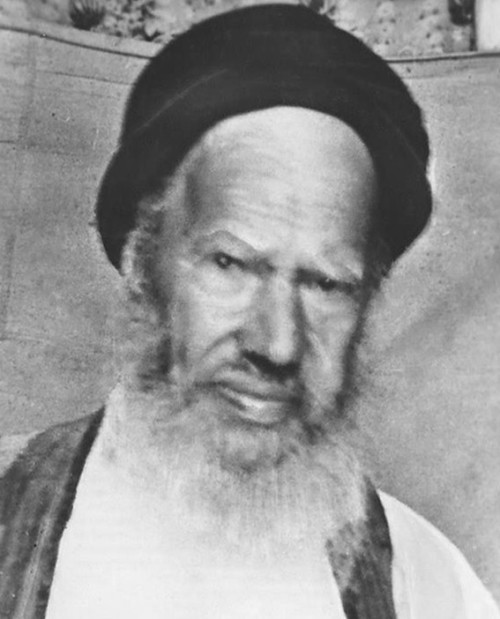
Rabbi Calfon Mosheh HaCohen (1874-1950) was the chief rabbi of Djerba, of the greatest scholars of Tunisia. Wrote numerous books, among them on the topics of Hebrew law, education, morality, sermons, and responsa.
An enthusiastic supporter of Zionism, all his life activity was to return to Eretz Yisrael.
Wrote a cosmopolitan vision, professing world peace and the establishment of an organization similar to the UN in Jerusalem. Passed away in Jerbah on the eve of moving to Israel, and in 2005 his bones were buried in Jerusalem.
The family of Rabbi HaCohen was from the attributed family Cohen Abri"sh, according to tradition descendants of 'Ezra HaSofer. His grand-grandfather Rabbi Shaul HaCohen was the head of court in the small quarter on the island of Djerba. His grandfather from the father's side is Rabbi Moseh HaCohen, the author of the book "Pnei Mosheh", after whom he was named. His father, Rabbi Shalom, authored the books "Nahar Shalom", "Hefetz Yakar", and "Hayyim Shalom", who was the head of court in Jirjis near Djerba.
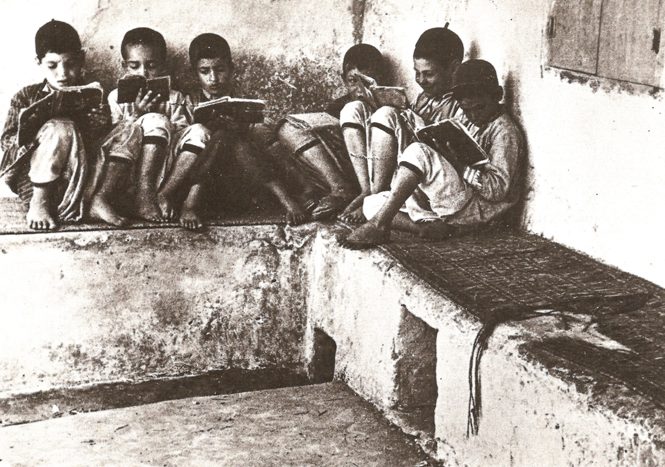
Born in 1874 to Rabbi Shalom Vetraci, on the island of Djerba in south Tunisia. During childhood, his family knew years of prosperity and wealth and was known for generous support for scholars and the poor of Jerbah. During their teenage years, the family's situation worsened and he had to help the housing economy, for which among other things he used to proofread and copy books. Studied with his father and with Rabbi Yosef Barabi, later the Chief Rabbi of Djerba.
When his father was called to lead the community of Jirjis, Rabbi Calfon Mosheh HaCohen was asked to be the Shohet. At 17, learned Shhitah from Rabbi Binyamin Hadad, and served as a Shohet and examiner. Following the hard working conditions, during the summer days under the sun, became ill with fever and his vision was injured. Despite that, initially didn't want to stop his work to support the house, but after many entreaties returned to Djerba to continue his study.
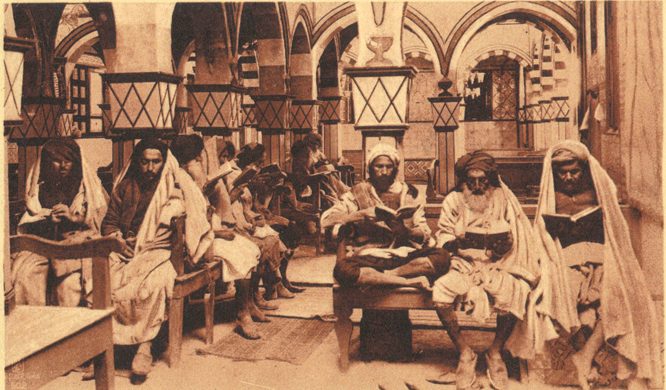
In 1895 Rabbi HaCohen married Msi'adah, a cousin on his mother's side, and the couple had 3 sons and 4 daughters. One of the sons, Rabbi Shushan HaCohen, after making Aliyah, was appointed the Rabbi of the village of Eitan in Israel.
When he was 25 was asked to accept membership in the Beit Din (Hebrew court) of Jerbah, but rejected arguing he didn't want to receive any goods from the public. Despite his rejection, over the years various propositions kept reaching him, to serve in various Rabbinic positions, sometimes with promises of major respected rewards, but he always rejected.
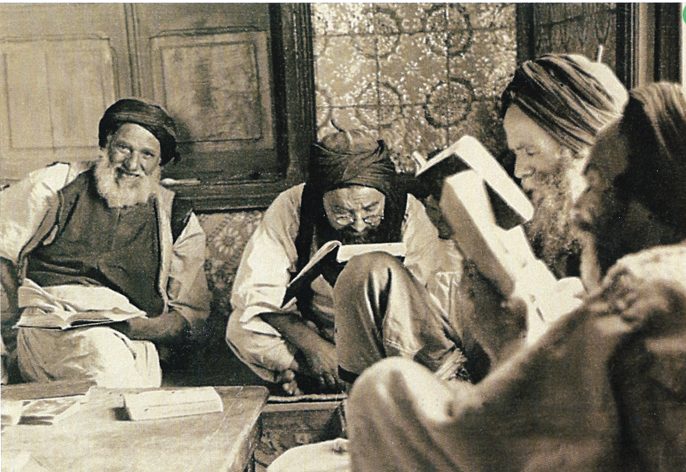
In 1917, at 43 years, was eventually appointed as a member of the Beit Din in Jerbah, however then as well rejected the offer to head the court, rather only as of the 3rd judge, and only at certain hours of the day. In practice, the conditions didn't fulfill, and all-day he was busy with almost all of Jerbah's cour carried on his shoulders. Several times considered leaving the position due to his health conditions and the load of work.


His leadership stood out at critical times when the Nazi invaders into Djerbah demanded 50kg of gold from the Jewish community. This was on Sabbath and he drove with them all over the Jewish neighborhoods, obliging every Jew to bring all the gold in possession.
At 75 Rabbi Calfon fell fataly ill. After a short improvement, he passed on Sabbath, 7th of June 1950. On the day of his burial, the surrounding towns were almost emptied of Jews, and the main marketplace in Jerbah (owned mostly by Jews) was closed. Tens of thousands, among whom were Tunisian and French governors took part in the funeral.
Was buried in Djerbah, but in 2005, 55 years after his passing, his bones were brought from Tunisia to Israel, and buried on the mountain of Menuhot in Jerusalem, by Rabbi Shalom Msas.
In the funeral procession that lasted 3 days, took part tens of thousands from Israel, Tunisia, and France, among them Rabbi Mordechai Elyahu and Rabbi 'Ovadiah Yosef.
Named after him, are various synagogues, schools, as well as streets in the cities of Netivot, Ashkelon, and a street in Jerusalem.
Due to the establishment of the 'Alliance' schools in Tunisia, objected with his cousin Rabbi Mordechai Amyas HaCohen against many, including Rabbi Yisrael Zayton, the Chief Rabbi of Tunisia, preferring to keep traditional Torah education. After the school was established, most Djerba residents listened to Rabbi Calfon, and didn't send their children to study there.
Despite opposing modernization in the Alliance schools, Rabbi Calfon was an enthusiastic supporter of the Zionist movement, despite knowing its central figures were far from tradition, he wrote -
"In our days, many of our brothers of the house of Israel though didn't grow up on the knees of Judaism, Torah, and commandments, and their judgment is as of abducted children among the nations. However, in their heart awakened a nationalist emotion, for the love of existence of the Israeli nation, and its persistence to be a separate nation from the nations of the world." - from the pamphlet "Geulat Mosheh" in his book "Zchut Mosheh".
Referring to Binyamin Zeev Herzl he wrote -
"In our days, an exalted man has risen among us, a man of character with a clear mind and sharp ideas, Binyamin Zeev Herzl is his name...came up with a wonderful idea, fo everyone to gather under the shade of the Zionist community and be called Zionists...and knocked on the gates of kings and counts - to take from them a clear ruling, for Eretz Yisrael to be for us as before".
In 1919 was among the founders of the Zionist movement "Ateret Zion" in Djerba, which acted in coordination with KKL and Keren HaYesod, to strengthen the Hebrew language, and her members were constantly updated about news from the land of Israel, through Hebrew newspapers like "HaLevanon", "HaMagid", "HaTzfirah" and "HaHavatzelet".
In his lesson during Shabat of Torah portion "Naso", 12th of Sivan, several days after the San Remo conference and confirmation of the Balfour Declaration by the League of Nations said that this was "the beginning of the redemption". He wrote and edited the lesson at the end of Shabat, and published it as the "The Fifth Sermon For The Beginning Of Redemption" in his book "Matte Mosheh", writing the following - "from now on there is no doubt this is the beginning of the redemption, and every man of Israel should thank thousands of time to G-d for the redemption and salvation, for G-d has commanded his nation and brought us from bondage to redemption".
Rabbi Calfon explained that getting familiar with Eretz Yisrael will significantly increase Aliyah, and in a vision, he wrote in the 1920s, suggested organizing visits of young Jews from around the world to Eretz Yisrael with the funding of the Zionist movement. A similar idea was fulfilled with the establishment of the "Taglit" organization in the year 2000.
Rabbi Calfon supported 'Aliyah and made sure the community members support the immigrants. He also called for purchasing parcels of land in the country and worked for the revival of the Hebrew language. With the establishment of the state of Israel, ruled for the Israeli Independence Day to be celebrated on the island of Djerba for entire 3 days.
In the year 1897, when at 24, tried for the first time to make 'Aliyah with the help of a friend from Tripoli, with whom he befriended during visits to cure his eyes. However, after the journey had already been organized, his father heard of this and wanted to talk him out of it, arguing that according to his counting the Mashiah comes in the year 1916 and he would wait till then. In order not to sadden his father Rabbi Mosheh Calfon HaCohen listened to his father and gave up on the opportunity to make 'Aliyah, an opportunity he regretted all his days.
In preparation for the 'Aliyah bought a parcel of land in the Beit HaCerem neighborhood in Jerusalem, and in his late days, while his health was precarious, decided to try making 'Aliyah once again. In the year 1949, he acquired a permit for 'Aliyah, and his son Shushan went to Tunis to order the documents. However, due to illness, his 'Aliyah was postponed as his health condition deteriorated, which didn't improve till his passing.
In his early writings, before the state of Israel was established, he judged detailed practical governmental ideas, not only in reference to the Zionist idea but also clearly cosmopolitan ideas.
Following the Russia-Japan war breaking out in 1904, Rabbi Calfon came to the conclusion, that Torah of Israel is not complete with only the liberation of Israel, but seeks to build a whole corrected world for all humanity. He formulated a wide cosmopolitan vision, which are mechanisms and institutions which will establish world peace. Due to his suspicion that his word won't be accepted, due to his status and the status of the relatively sideline country in which he lived, Rabbi Calfon archived the vision. An Arabic newspaper reached him 15 years later, revealing before him to his surprise similar political ideas to which he wrote about in 1905. Since then decided it was his duty to publish his ideas publically.
In the early 20s of the 20th century, Rabbi Calfon gave speeches in which he focused on the need to deal with international law, and formulated in detail a practical proposition for the establishment of a world government and the establishment of international law. He advanced mechanisms for solving international conflicts and formulated a political-state program including many goals.
Rabbi Calfon called for the establishment in Jerusalem of an international committee and an international court to examine the conduct of the countries according to the wellbeing of all humanity, to include representatives from all countries which together decide in international conflicts and prevent the use of force and violence. This idea, which was realized later with the establishment of the UN, included several additional ideas, among which, an International army to treat countries not willing to follow the counsel of the nations, a council to act for education to tolerance in a moral way, the idea for the establishment of a central world bank, which partial income will be leveraged to the poor of the countries, and an international currency for trade, which value is equal in all countries. The latter idea was realized as well, with the invention of the BitCoin, a couple of decades later.
Rabbi Calfon explained that the establishment of the major center of the international committee should be in Jerusalem, 'for there is great hope for all nations - we Jews, the Christians and Ishmaelites'.
With the strengthening of the movement for the return to Zion and the Belfour Declaration, the revival of the Hebrew language and the improvement of the conditions for Jews in developed countries Rabbi Calfon saw the beginning of the redemption age.
Rabbi Calfon saw technological development as a means for the world to become a global village, requiring the world countries to come to the help of countries in distress as part of mutual guarantee and world peace. The last term was also a religious obligation, and technological development symbolized in his view the basis for a higher spiritual level.
Among his books, more than 50 writings have been published dealing with all aspects of Judaism.

"הרב כלפון היה מנהיג ציוני שעודד סדר עולמי כלל אנושי"
מרכז דהאן למורשת קהילות ישראל עורך כנס המתמקד ביצירתם, פועלם והשפעתם שלחכמי תוניסיה בעת החדשה לרגל 70 שנים לפטירתו של אחד מגדולי רבני ג@@@רבהwww.maariv.co.il
Morocco and the cause of Zionism
Similar threads
- Replies
- 1
- Views
- 74
- Replies
- 39
- Views
- 746
- Replies
- 96
- Views
- 1K
- Replies
- 5
- Views
- 153
Latest Discussions
- Replies
- 351
- Views
- 3K
- Replies
- 2
- Views
- 11
Forum List
-
-
-
-
-
Political Satire 8040
-
-
-
-
-
-
-
-
-
-
-
-
-
-
-
-
-
-
-
ObamaCare 781
-
-
-
-
-
-
-
-
-
-
-
Member Usernotes 469
-
-
-
-
-
-
-
-
-
-
